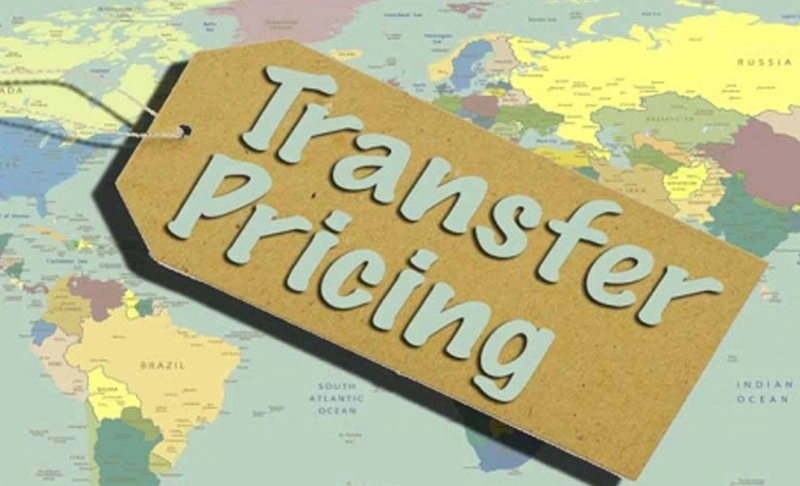The United Arab Emirates (UAE) has been unexpectedly evolving its company tax landscape, with significant changes aimed at aligning with global requirements and improving its role as a commercial enterprise hub. One vital issue of this evolution is the implementation of transfer-pricing regulations under the UAE’s company tax framework. These policies are designed to ensure fairness and transparency in transactions among associated events, especially for multinational enterprises (MNEs). In this context, corporate tax consultants in Dubai play an essential role in guiding organizations via those complicated policies.
Introduction to UAE Corporate Tax
The UAE brought corporate tax effective from financial years beginning on or after June 1, 2023, marking a large shift in its monetary framework. The standard statutory tax-rate is 9% on net income exceeding AED 375,000, with a 0% rate for taxable income as much as this threshold to assist small organizations and startups. However, beginning from January 1, 2025, massive MNEs will face a 15% corporate tax-rate under the Domestic Minimum Top-up Tax (DMTT), aligning with the OECD’s Pillar Two framework.
Transfer Pricing Regulations
Transfer pricing includes putting costs for items and offerings bought among affiliated companies. The UAE’s transfer-pricing guidelines, mentioned in Federal Decree-Law No. forty seven of 2022, are designed to save you income transferring and ensure that income is taxed wherein the financial interest occurs. These policies align with the OECD transfer-pricing guidelines, emphasizing the arm’s length principle, which requires for transactions among related parties to be conducted as though they were between independent parties.
Objectives of Transfer Pricing Rules
The primary objectives of those guidelines are:
- Prevent Profit Shifting: Ensure that income isn’t artificially shifted to low-tax jurisdictions.
- Ensure Economic Activity Alignment: Tax income wherein the financial interest producing them occurs.
- Align with OECD Guidelines: Adhere to worldwide first-rate practices for transfer-pricing.
Transfer Pricing Methods
The UAE recognizes numerous transfer-pricing strategies to decide arm’s length prices:
- Comparable Uncontrolled Price (CUP) Method: Compares internal transaction costs with the ones in external, arm’s-length transactions.
- Resale Price Method (RPM): Deducts a gross margin from the resale rate to an independent party.
- Cost Plus Method: Adds a markup to manufacturing costs.
- Transactional Net Margin Method (TNMM): Compares net income margins with the ones of independent parties.
- Transactional Profit Split Method: Allocates income primarily based totally at the price of contributions.
Role of Corporate Tax Consultants in Dubai
Given the complexity of those policies, corporate tax specialists in Dubai are crucial for making sure compliance and optimizing tax efficiency. These professionals help with:
- Transfer Pricing Documentation: Preparing grasp files, local files, and country by country reporting.
- Compliance: Ensuring adherence to transfer-pricing policies and reporting associated celebration transactions.
- Risk Assessment: Identifying and mitigating capability transfer-pricing risks.
- Transfer Pricing Studies: Conducting analyses to decide arm’s duration costs and assist transfer-pricing positions.
Challenges and Opportunities
While the UAE’s transfer-pricing policies create demanding situations for organizations, they also provide possibilities for increase and compliance. Companies need to conduct thorough effect exams to apprehend how those guidelines have an effect on their economic statements and tax provisions. Moreover, the UAE’s alignment with OECD requirements complements its elegance as a worldwide commercial enterprise hub, encouraging funding and headquarters activities.
Conclusion
In conclusion, the UAE’s transfer-pricing policies beneath its corporate tax framework are designed to ensure fairness and transparency in associated celebration transactions. Corporate tax consultant in Dubai play a vital role in navigating those policies, making sure of compliance, and optimizing tax techniques for organizations working inside the UAE. As the UAE keeps conforming its tax landscape, organizations need to stay knowledgeable and adapt to those adjustments to hold their competitive aspect inside the worldwide marketplace.
FAQs
What are Transfer Pricing Regulations under UAE’s Corporate Tax Framework 2025?
They govern the pricing of transactions between related entities to ensure fair market value and prevent tax avoidance.
Why are Transfer Pricing Regulations important in the UAE?
They ensure that intra-group transactions are priced fairly, aligning with global standards and avoiding tax manipulation.
How does the UAE enforce Transfer Pricing rules?
The UAE requires documentation and disclosures for related-party transactions to ensure compliance with the arm’s length principle.
What is the arm’s length principle in Transfer Pricing?
It requires that transactions between related entities be priced as if they were between unrelated parties, ensuring fairness and transparency.





